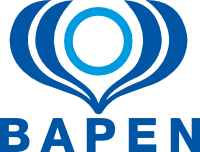BAPEN would like to update its membership by sharing updates from the the EPSG group.
ISO 80369-3: IMPORTANT UPDATE – ENFit Implementation
Issued October 2016
As part of a carefully planned 2–stage process, ENFit implementation commenced towards the end of 2015 throughout the UK. ENFit is the global enteral feeding device connector design that complies with the new International Standard (ISO 80369-3).
The first stage of the process, introduction of transition giving sets is now complete, with the majority of patients already using these alongside their existing enteral feeding tubes.
The second stage of the plan is to introduce ENFit enteral feeding tubes and all related ancillary items (including NG tubes, PEG’s, jejunal tubes, button gastrostomy tubes, and enteral syringes), in order to complete the implementation process.
As a result of further testing that was required on ENFit low dose enteral syringes during the first half of 2016, the introduction of ENFit enteral feeding tubes and related ancillary items was delayed. This second stage is now underway and the vast majority of these products are already available.
To support the completion of the process, it has been agreed by members that transition giving sets will now be available until the end of December 2016, to ensure full compliance with the ENFit system. From then, loose adaptors will remain available separately for any remaining patients not yet transitioned to the ENFit system. It is recommended that health professionals liaise directly with their homecare service provider(s) to facilitate ordering the appropriate adapters for their community patients.
Note: All companies supplying adapters offer guidance around their appropriate use in practice available on their website, or on request.
Full details regarding this statement, the International Standard and the introduction of ENFit are available from all EPSG members.
Issued May 2016
As part of a carefully planned 2–stage process, ENFit implementation commenced in September 2015 throughout the UK. ENFit is the global enteral feeding device connector design that complies with the new International Standard (ISO 80369-3). The first stage of the process, introduction of transition giving sets and gravity sets is now well underway, with many patients already using these with their existing enteral feeding tubes.
The second stage of the plan was to introduce ENFit enteral feeding tubes and all related ancillary items from March 2016, in order to complete the implementation process.
Questions were raised towards the end of 2015 around the accuracy of low dose syringes using the new ENFit connection, and a decision was taken by the global group responsible for the introduction of ENFit (GEDSA) to carry out further independent lab testing on these syringes to ensure accuracy prior to launch. This is now complete and a summary of the findings is available from the GEDSA website.
The 2nd phase of the implementation has begun from the 4th July 2016.
The EPSG recommend administration of medication in line with local best practice. Your syringe supplier can provide further details and product information as required. Furthermore, it has been agreed by members that transition sets will continue to be available until the end of 2016, to ensure full compliance with the ENFit system, and from then, adaptors will be supplied separately for any remaining patients not yet transitioned to the ENFit system.
Full details regarding this statement, the International Standard and the introduction of ENFit are available from all EPSG members as listed below.
Following recent discussions BAPEN would like to raise some points for Trusts to consider when implementing phase 2:-
- Agree a local implementation plan based on manufacturer and local procurement guidance on product availability to your area.
- Consider patient discharge planning and admissions to and from out of area locations.
- Agree a communication plan with your enteral feed company provider and tube or syringe manufacturer.
- As the product situation is continuing to change on a weekly basis customers are advised to contact their supplier base or NHS Supply Chain’s Enteral Feeding Buyer – chloe.lynn@supplychain.nhs.uk for the latest product update.
- As NHS Supply Chain will be managing stock levels closely we are requesting support from each trust in the form of estimated transition dates to be shared with supply chain.
- Any further questions, please contact your local NHS Supply Chain Account Manager.
- We do advise you to consult your own local clinical experts.
- Further points to consider are that
- As of mid June not all of our industry partners have a plan in place to ensure that every patient will receive the tube/syringe which will fit their current device. This is because there is no descriptor on the ordering system which defines if the product required is ENFit compliant or not. This may lead to an order being placed for a patient with an ENFit tube for ENFit compliant ancillaries but with no guarantee from the companies that they will receive the compatible syringes/equipment. ESPG have raised this issue with industry.
Given the different timescales for implementation across each Trust, combined with manufacturing availability, there is a potential risk to patient care and delayed treatment. Consideration should be given to inter-hospital transfers and availability of equipment on transfer to the community setting.
The second phase implementation was delayed due to dose accuracy concerns specifically with 1,3, and 5ml ENFit syringes. The potential overdose risk to the patient if the syringe was not used correctly was highlighted at a figure of up to 30 %. Independent tests have since been carried out and the risk has been mitigated if usage guidance followed. The full results of the testing carried out can be found on the GEDSA website. http://gedsa.org/
Additional information can be found on the PENG website. www.peng.org.uk
Should you have any further questions then please raise them either the BAPEN office or your own Trust procurement department.


